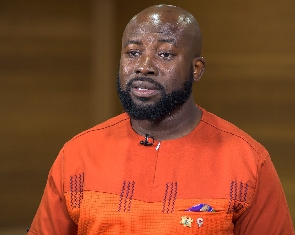There's a saying, "To whom much is given, a lot is expected". Ghana, our beloved country, has immense natural resources: gold, diamonds, bauxite, timber, manganese, cocoa, coffee, crude oil… So, why do we continue to borrow from the IMF?
As we celebrate our 66th Independence Day, I cannot help but reflect on the progress we have made as a nation. However, two issues that continue to plague us are corruption and nepotism. These issues have been prevalent for years and have hindered our development as a nation.
I have witnessed the effects of corruption and nepotism in Ghana. I have seen individuals use their connections to secure job positions and contracts, while deserving candidates are left out. So, we're just putting square pegs in round holes. Which means, we sacrifice meritocracy on the altar of nepotism.
Of course, I have also witnessed the mismanagement of state resources, resulting in poor infrastructure and inadequate healthcare and education facilities.
But there is hope for Ghana to build a better future. I think technology can be a game-changer in the fight against corruption and nepotism. With the advent of technology, we now have numerous tools and platforms that can promote transparency and accountability in government and public institutions.
Blockchain technology is a distributed ledger technology that enables secure and transparent record-keeping of transactions without the need for a central authority or intermediary.
In other words, it is a decentralized system that records and stores data across a network of computers in a tamper-proof and transparent way. For instance, Blockchain technology can be used to create a transparent and secure system for managing government contracts and tenders. This will reduce the opportunities for corruption and ensure that contracts are awarded based on merit.
Ghana Card is a step towards using technology to address the issue of multiple identities and ghost names in the country's account system. The Ghana Card, officially known as the Ghana National Identification Card, is a biometric identification card that is issued to citizens and legally resident foreigners in Ghana.
The Ghana Card contains biometric data such as fingerprints, facial recognition, and iris scans, as well as personal information such as name, date of birth, and nationality. This information is stored in a centralized database, which makes it easier to verify the identity of individuals and prevents the use of multiple identities or "ghost names" in the accounting system.
By using the Ghana Card as a means of identification, individuals can have a single, trusted form of identification that can be used across multiple sectors, including healthcare, finance, and government services.
This can help to streamline processes, reduce fraud, and improve accountability. Overall, the Ghana Card represents a significant step towards using technology to improve the efficiency and integrity of Ghana's account system, while also providing citizens with a secure and reliable means of identification.
Ushahidi is a citizen engagement platform that allows users to report incidents of corruption, nepotism or any other issue they encounter in their communities. The platform collects data from individuals through SMS, email, and social media, and uses mapping tools to visualize and share the information with the public.
Ushahidi was first developed in Kenya in 2008 as a crisis mapping tool but has since evolved to become a powerful tool for promoting transparency and accountability in various sectors, including governance, healthcare, and education. The platform has been used in various countries around the world, including Ghana, to collect and share data on various issues affecting their communities.
On the other hand, FixMyStreet is also a citizen engagement platform that enables users to report and track issues related to public infrastructure, such as potholes, broken streetlights, and damaged sidewalks. The platform collects reports from citizens and sends them to the appropriate authorities, who are then responsible for addressing the issues.
FixMyStreet was first developed in the United Kingdom in 2007 and has since been adopted in various countries around the world, including Ghana. The platform empowers citizens to take an active role in improving their communities by reporting issues that affect their daily lives.
By providing a platform for citizens to report issues related to public infrastructure, FixMyStreet promotes transparency and accountability in government institutions. It also enables the public to hold public officials accountable for addressing these issues on time, thus improving the quality of life for all citizens.
Regardless of the availability of platforms like FixMyStreet and Ushahidi in Ghana, corruption and nepotism remain our major problems. This is because these platforms alone cannot solve the problems of corruption and nepotism, and there are many other factors at play. This also means that the state has a responsibility to offer education and raise awareness among its citizens, to help them comprehend the reasons why their direct involvement is critical and necessary.
For instance, some individuals may not feel comfortable reporting incidents of corruption or nepotism, either because they fear retaliation, or they lack trust in the institutions responsible for addressing these issues. Additionally, corrupt individuals may use various methods to evade detection, such as concealing their activities, bribing officials, or creating fake documents.
So, I just wanted to establish the fact that corruption and nepotism are deeply entrenched in Ghanaian society and have become normalized over time. This means that technology alone cannot solve the problems that plague Ghana.
While platforms like FixMyStreet and Ushahidi can play a crucial role in promoting transparency and accountability in government institutions, they are just one piece of the puzzle. Addressing corruption and nepotism in Ghana will require a multi-faceted approach, involving various stakeholders and sustained effort over time.
Of course, we must all play our part in fighting corruption. However, the silence of some stakeholders like the clergy et al. is becoming too loud. Evil men triumph when good men refuse to stand up and be counted.
So as citizens, and not spectators, it is our fundamental right to demand transparency and accountability from our public officials. We must also report cases of corruption and nepotism to the appropriate authorities.
In essence, the government must also take the lead in embracing technology as a tool for promoting transparency and accountability. The government must invest in the necessary infrastructure and create an enabling environment for technology startups and innovators.
Regardless of the challenges, I am hopeful that Ghana can build a better future devoid of corruption, nepotism, religious fanaticism, and other societal ills. As we celebrate Ghana's independence, let us remember that we all have a role to play in building a better Ghana for all. But with the help of technology and our collective efforts, we can build a better Ghana devoid of corruption, nepotism, and other societal ills.
Finally, I’ll encourage each and every Ghanaian to help expose those who manipulate and use criminal means to sabotage the digital platforms already in the system like FixMyStreet, Ushahidi, the school placement system, etc.
Let us also use technology to promote transparency and accountability in public institutions, demand transparency and accountability from our public officials, and report cases of corruption and nepotism to the appropriate authorities. Together, we can build a better Ghana for all.
Long Live Ghana!
Opinions of Monday, 6 March 2023
Columnist: Dr. Wilson O. Otchie, PhD















